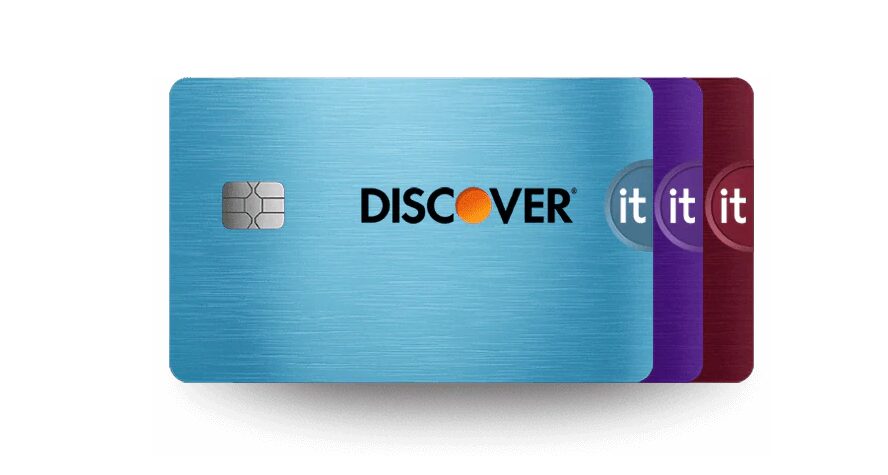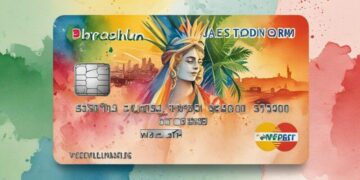Personal Loans vs. Credit Cards: Which is the Best Option for You?

Understanding Financial Choices
Embracing control over your financial life is a powerful decision with far-reaching consequences. The pathway to financial stability often requires careful analysis of how different borrowing options can serve your unique needs. Among the most prominent choices are personal loans and credit cards. Although they both provide a means to access funds, their structure and utility differ significantly, each with its own set of benefits and drawbacks.
Personal Loans: A Strategic Choice
Personal loans are typically a wise option when you’re faced with larger, one-time expenses such as home renovations, medical bills, or major purchases like a vehicle. These loans come as a lump sum, so you can tackle those significant financial challenges in one go. Moreover, they often feature fixed interest rates, offering predictability in your monthly payments. This can be especially comforting when budgeting, as you know exactly how much you owe each month until the loan is paid off.
Another advantage is the set repayment schedule. This structure compels discipline and helps develop good repayment habits, leading you to a debt-free future. Suppose you take out a personal loan for $10,000 with a fixed interest rate; knowing that your payments will remain consistent over the term of the loan can provide peace of mind as you plan your other financial commitments.
Credit Cards: Flexibility at Your Fingertips
On the other hand, credit cards provide unmatched flexibility for daily expenses and are especially convenient for regular purchases such as groceries, gas, or even travel. With the ability to borrow up to a certain limit, credit cards allow you to manage smaller expenses and emergencies with ease. However, it’s important to note that credit cards often have variable interest rates. This means the cost of borrowing can fluctuate, potentially making it more expensive if you carry a balance.
Additionally, credit cards often come with the requirement of only minimum monthly payments, which can sometimes encourage a cycle of debt if not handled responsibly. Let’s say you’ve accrued a balance of $5,000 on your credit card; if you only pay the minimum each month, you may find yourself trapped in debt for a much longer period, costing you more in interest over time.
Making Empowered Financial Decisions
Understanding the distinctions between personal loans and credit cards can empower you to make informed decisions tailored to your financial goals. Ask yourself critical questions: What are your immediate financial needs? Are you facing a significant purchase or managing smaller, ongoing expenses? Recognizing your unique circumstances can make the choice clearer.
More than just resolving immediate financial stress, choosing wisely between these options can foster long-term peace of mind. In undertaking this analysis, you’re not only taking control of your current financial situation, but you’re also laying the groundwork for a healthier financial future. Ultimately, your proactive approach will guide you on a journey toward stability and fulfillment in your financial life.
Choosing the Right Financial Tool
When it comes to financing your needs, the decision between a personal loan and a credit card is more than just a matter of numbers; it’s about selecting the right financial tool for your lifestyle and goals. Each option possesses distinct characteristics that make it suited for different occasions and financial strategies. Gaining a deep understanding of these features can empower you to streamline your decisions and build a robust financial foundation.
Personal Loans: Meeting Significant Needs
Personal loans tend to be ideal for sizeable, well-defined expenditures. While credit cards are excellent for everyday purchases, personal loans serve as a lifeline when panic sets in from unexpected costs. For instance, consider a situation where your car breaks down unexpectedly, requiring extensive repairs. A personal loan can offer immediate relief. Here are a few scenarios where a personal loan would be advantageous:
- Home Improvements: Whether updating your kitchen or finishing your basement, personal loans can provide the necessary funding to enhance your home’s value.
- Medical Expenses: Facing significant medical bills can be daunting; personal loans can cover these costs quickly without the burden of high credit card interest.
- Debt Consolidation: If you have multiple high-interest debts, a personal loan can consolidate them into one manageable payment, often at a lower rate.
Beyond their purpose, personal loans often come with lower interest rates compared to credit cards, especially for those with good credit. Additionally, fixed repayment terms help provide clarity. With a determined structure, you are more likely to stay committed to repayment, ultimately offering you peace of mind as you finish your loan terms.
Credit Cards: The Flexible Companion
On the contrasting side, credit cards embody flexibility and convenience in daily financial engagements. They’re designed for ongoing expenses and spontaneous purchases. Imagine swiping your card to grab a quick coffee or using it for last-minute grocery needs; this ease can be a double-edged sword. Let’s look at some key benefits:
- Rewards and Cash Back: Many credit cards offer rewards programs that provide cash back or points for purchases. This can be a lucrative way to earn while spending.
- Emergencies: Having a credit card can be a lifesaver in sudden situations where immediate funds are necessary.
- Building Credit: Regularly using a credit card responsibly can strengthen your credit score, which is vital for future financing needs.
However, with great power comes great responsibility. The inherent risk of overspending and accumulating debt is a reality when managing credit cards. The temptation of only paying the minimum monthly balance can lead to long-term financial pitfalls. If you find yourself only making minimum payments on a balance of $4,000, you may end up prolonging the repayment process significantly, ultimately incurring extra interest charges.
Aligning Your Choice with Financial Goals
Ultimately, the best choice between personal loans and credit cards hinges on your financial objectives and circumstances. Understanding your current financial landscape and upcoming needs can illuminate the path toward a more fulfilling financial future. As you analyze these options, remind yourself that the goal is not merely to borrow money but to adopt strategies that foster financial stability and personal confidence. By making informed choices, you lay the groundwork for a more secure and prosperous tomorrow.
Evaluating Your Spending Habits and Financial Health
As you weigh the benefits and drawbacks of personal loans versus credit cards, it’s essential to assess your spending habits and overall financial health. Whether you are navigating everyday expenses or preparing for a significant financial obligation, understanding your current financial behavior will play a pivotal role in illuminating which option aligns best with your lifestyle.
Analyzing Cash Flow and Budgeting
When considering a personal loan, one crucial aspect to evaluate is your cash flow. Personal loans often require fixed monthly payments over a set term, which can streamline budgeting practices. You will want to determine if these fixed payments fit comfortably within your existing budget. It’s essential to review your income against your expenses and ascertain whether you can absorb additional payments without compromising your financial stability.
On the other hand, credit cards can provide a more flexible approach to cash flow management. With a credit card, you have the ability to carry a balance and manage your spending depending on fluctuating income levels. However, this flexibility can be both freeing and binding; it requires a disciplined approach to ensure that you don’t overspend beyond your means. Keeping track of your expenses can require considerable diligence, and it’s critical to rely on your budgeting skills to avoid falling into debt.
Interest Rates and Long-Term Financial Impact
Another vital factor in this decision-making process is the interest rates associated with each option. While credit cards typically have higher interest rates, personal loans can offer lower interest rates, particularly for borrowers with good credit. This characteristic can lead to substantial savings in the long run. For instance, if you were to opt for a personal loan with a 10% interest rate over three years versus a credit card with a 20% rate, the total interest paid on the credit card could significantly overshadow that of the personal loan.
Moreover, understanding how these interest rates affect your repayment timeline is crucial. If you find yourself in a cycle of debt with a credit card, it may take years to pay off even a moderate balance, depending on your repayment strategy. Conversely, the structured nature of a personal loan may provide the clarity and urgency needed to prioritize debt repayment.
The Role of Your Credit Score
Your credit score plays a pivotal role in determining your eligibility and interest rates for both personal loans and credit cards. If your score is robust, you are likely to secure favorable terms with both options. However, if you are still building your credit, consider how each choice can impact your score moving forward. Responsible credit card usage can help improve your score over time, whereas personal loans may offer less immediate credit-building potential unless you pay them down consistently.
Moreover, keep in mind that seeking multiple personal loan applications in a short period can negatively impact your credit score; however, inquiries for rate shopping within a limited timeframe are often treated as one query. Understanding these nuances allows you to approach your financial decisions more prudently, taking ownership of your financial destiny.
At the end of the day, whether you lean towards personal loans or credit cards, cultivating financial literacy and adopting responsible spending practices can transform your experience. These essential tools—when used mindfully—can propel you toward a healthier financial life and help you attain your long-term aspirations.
Conclusion: Making the Right Choice for Your Financial Future
In the quest to determine whether personal loans or credit cards are the better financial tools for you, it’s crucial to reflect on your unique circumstances, spending habits, and financial goals. Each option presents distinct advantages and drawbacks that warrant careful consideration. Personal loans offer the allure of stable payments and lower interest rates, which can help streamline your budgeting and provide financial clarity. In contrast, credit cards offer flexibility and the potential to build your credit score, providing immediate access to funds—but with the companion risk of falling into a cycle of debt.
As you navigate the financial landscape, prioritize a deep understanding of your cash flow and budgeting practices. Assess your interest rates realistically and evaluate how each choice can set you on a path toward fulfilling your long-term aspirations. Remember, your credit score serves as a barometer of trust in your financial responsibility, influencing your options significantly.
Ultimately, the best choice between personal loans and credit cards rests not just on the numbers, but also on your commitment to responsible financial management. Let this decision be an opportunity for growth—one that enhances your financial literacy and leads you toward greater stability and security. Whether you opt for the structure of a personal loan or the flexibility of a credit card, embrace the journey of making conscious, informed choices that ensure you master your financial destiny.
Related posts:
The Comprehensive Guide to Getting an Oportun Personal Loan
How to Create an Efficient Monthly Budget in the United States
How Online Loan Services Work in the USA
The Pros and Cons of Personal Loans: What You Need to Know
Personal Loans for Emergencies: When and How to Use Wisely
Comparison of digital credit cards in the United States

Beatriz Johnson is a seasoned financial analyst and writer with a passion for simplifying the complexities of economics and finance. With over a decade of experience in the industry, she specializes in topics like personal finance, investment strategies, and global economic trends. Through her work on Web Dinheiro, Beatriz empowers readers to make informed financial decisions and stay ahead in the ever-changing economic landscape.







